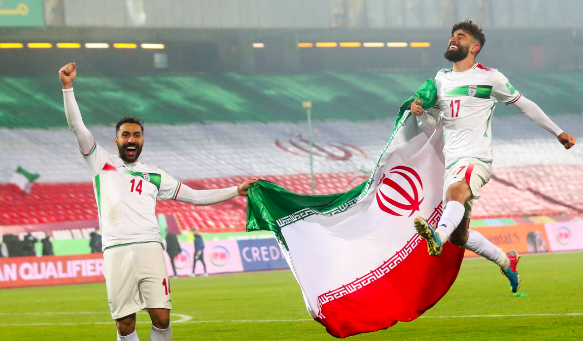Photo: Courtesy of NBC News
The United States as a whole has an obsession with sports. Top players become celebrities and receive hundred-million-dollar contracts for playing alone and terminal matches like the Super Bowl are the most watched television events of the year. However, despite its global popularity, professional soccer in the United States is less popular than other sports like football or basketball. That changes twice every four years, as the most popular sport in the world comes to the forefront of attention in the US for the Men’s and Women’s World Cup.
The average reader’s knowledge of the ongoing World Cup is likely limited to the current frontrunners in their respective games. It is unlikely that a geopolitical crisis thousands of miles away in Iran would come to mind. However, the Iranian World Cup team has been under constant threat from their government since the beginning of the cup.
Before discussing human rights violations regarding the Iranian World Cup team, it is crucial to understand the current situation in Iran. Mahsa Amini, a 22-year-old Iranian woman, passed away on September 16th in police custody three days after being arrested for “improper hijab.” Reports have stated that she was beaten with a baton and passed away in a coma. However, the official cause of death is listed as natural causes and protests have broken out in many of Iran’s largest cities as a result.
This death is the escalation of a months-long effort from the Iranian government to further police women, especially enforcement of laws regarding hijab. Verified reports have shown women being disproportionately injured and detained for protesting, which has only escalated since the death of Amini. Recently, the government has escalated further by using pellet guns, live rounds and even tear gas on protestors. But protestors are more fired up than ever to evoke change. Historically, the cause of Iran’s turmoil has been poor governance regarding socio economic issues, but now that the government has fired shots (both literally and figuratively) at citizens’ identities, a new fire has been lit in the hearts of Iranian citizens feeling oppressed by their government.
How does this relate to the World Cup? As an incredibly important moment in current global consciousness, the entire world is informed on players and coaches, including those from Iran. Iranian players have been threatened to be on their best behavior; they must sing the Iranian national anthem before a game, avoid outside contact and refrain from joining an anti-Tehran political movement. If they fail to abide by these conditions, their families will face violence and torture. Furthermore, reports have been publicized that the Iranian regime is purposefully sending fans into the crowds of Iranian games to convey their support among fans to the rest of the world.
Regarding its domestic crisis, the United Nations High Commissioner for Refugees, Volker Turk, stated, “We have seen waves of protests over the past years, calling for justice, equality, dignity and respect for human rights. They have been met with violence and repression. The unnecessary and disproportionate use of force must come to an end. The old methods and the fortress mentality of those who wield power simply don’t work. In fact, they only aggravate the situation. We are now in a full-fledged human rights crisis.” The fate of the Iranian soccer team after being eliminated from the World Cup is still unknown.






